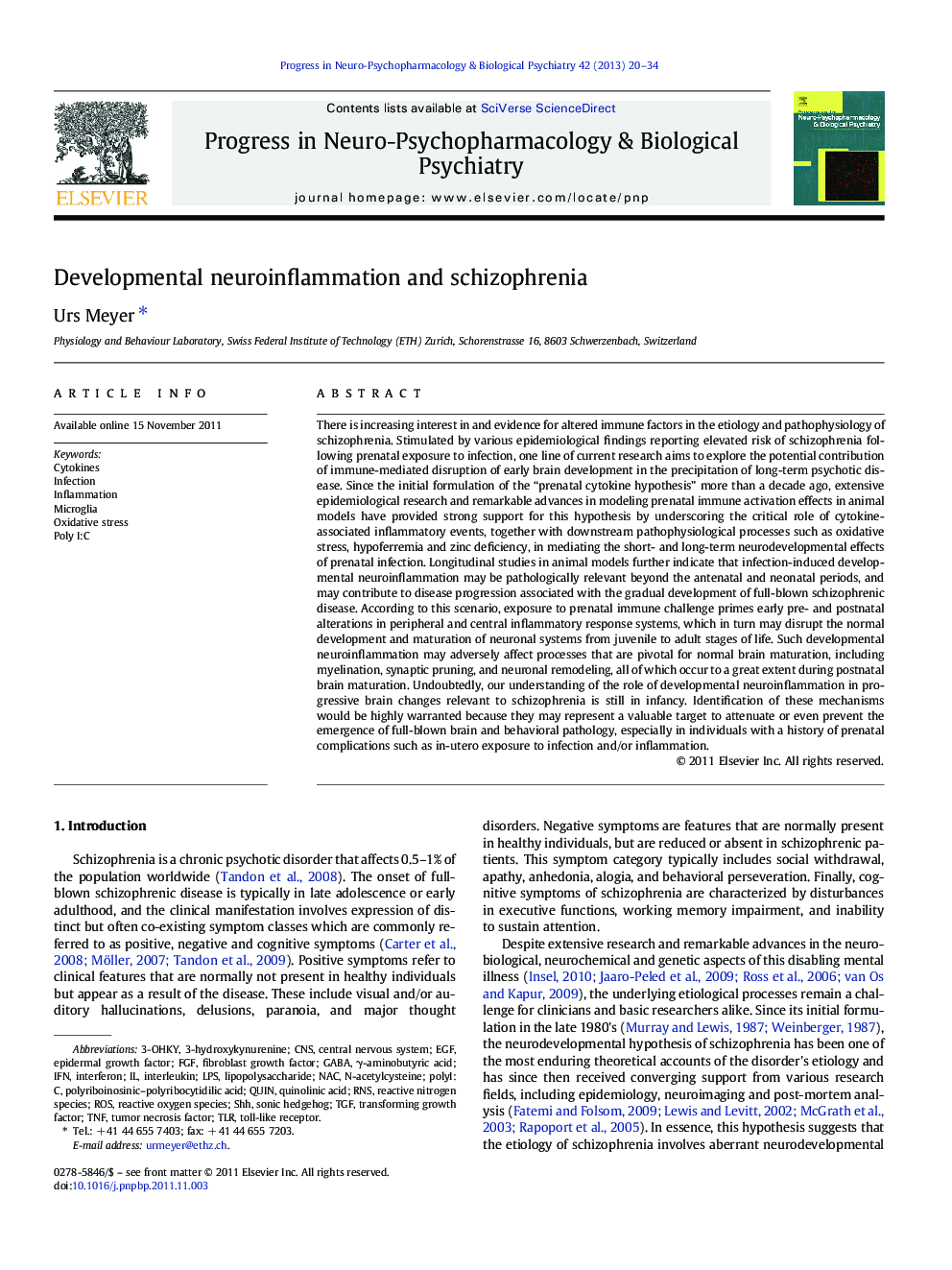| کد مقاله | کد نشریه | سال انتشار | مقاله انگلیسی | نسخه تمام متن |
|---|---|---|---|---|
| 2564921 | 1561052 | 2013 | 15 صفحه PDF | دانلود رایگان |

There is increasing interest in and evidence for altered immune factors in the etiology and pathophysiology of schizophrenia. Stimulated by various epidemiological findings reporting elevated risk of schizophrenia following prenatal exposure to infection, one line of current research aims to explore the potential contribution of immune-mediated disruption of early brain development in the precipitation of long-term psychotic disease. Since the initial formulation of the “prenatal cytokine hypothesis” more than a decade ago, extensive epidemiological research and remarkable advances in modeling prenatal immune activation effects in animal models have provided strong support for this hypothesis by underscoring the critical role of cytokine-associated inflammatory events, together with downstream pathophysiological processes such as oxidative stress, hypoferremia and zinc deficiency, in mediating the short- and long-term neurodevelopmental effects of prenatal infection. Longitudinal studies in animal models further indicate that infection-induced developmental neuroinflammation may be pathologically relevant beyond the antenatal and neonatal periods, and may contribute to disease progression associated with the gradual development of full-blown schizophrenic disease. According to this scenario, exposure to prenatal immune challenge primes early pre- and postnatal alterations in peripheral and central inflammatory response systems, which in turn may disrupt the normal development and maturation of neuronal systems from juvenile to adult stages of life. Such developmental neuroinflammation may adversely affect processes that are pivotal for normal brain maturation, including myelination, synaptic pruning, and neuronal remodeling, all of which occur to a great extent during postnatal brain maturation. Undoubtedly, our understanding of the role of developmental neuroinflammation in progressive brain changes relevant to schizophrenia is still in infancy. Identification of these mechanisms would be highly warranted because they may represent a valuable target to attenuate or even prevent the emergence of full-blown brain and behavioral pathology, especially in individuals with a history of prenatal complications such as in-utero exposure to infection and/or inflammation.
Hypothetical model summarizing aspects of developmental neuroinflammation in schizophrenia.Figure optionsDownload as PowerPoint slideHighlights
► Prenatal infection is associated with schizophrenia.
► Developmental neuroinflammation may play an important role in this association.
► Targeting neuroinflammation may have therapeutic potentials in schizophrenia.
Journal: Progress in Neuro-Psychopharmacology and Biological Psychiatry - Volume 42, 5 April 2013, Pages 20–34